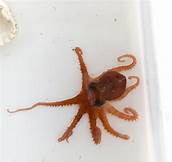Can You Have an Otter as a Pet in California?
Otters are adorable, playful, and intelligent creatures that make many people wonder if they can be kept as pets. The answer is a bit complicated, as the legality of owning an otter as a pet varies from state to state.

Legality of Owning an Otter as a Pet in California
In California, it is illegal to possess or sell otters as pets, which means having one is strictly prohibited. This ban is in place to protect these animals and ensure their well-being.
Reasons for the Ban
There are several reasons why California has banned the ownership of otters as pets:
- Otters are wild animals: They are not domesticated and should live in their natural habitat, where they can exhibit their natural behaviors and interact with other otters.
- Specialized Care: Otters require specialized care and a diet that is challenging to provide outside their natural environment. They need access to clean water, fresh fish, and a proper habitat that mimics their natural surroundings.
- Potential for Harm: Otters can be aggressive and territorial, especially during mating season. Their sharp teeth and claws can cause serious injuries to both humans and other animals.
- Inadequate Facilities: Most homes or environments cannot provide the space and resources needed to meet an otter's unique needs. Confining them to small enclosures can lead to physical and psychological distress.
- Conservation Concerns: California's native otter species, the sea otter, is considered a threatened species. Keeping otters as pets contributes to the decline of these populations by encouraging poaching and illegal trade.
Exceptions to the Ban
Under specific circumstances, exceptions to this ban may be granted by the California Department of Fish and Wildlife. These exceptions are typically reserved for educational institutions, wildlife rehabilitation centers, and scientific research facilities that have the expertise and resources to provide appropriate care for otters.
Obtaining a permit requires meeting strict criteria and demonstrating the ability to provide adequate housing, nutrition, veterinary care, and socialization opportunities for the otter. The permit holder must also adhere to specific regulations and undergo regular inspections to ensure the animal's well-being.
Alternatives to Owning an Otter as a Pet
If you are passionate about otters and want to contribute to their conservation, there are several ways to do so without owning one as a pet:
- Support Wildlife Conservation Organizations: Donate to organizations working to protect otters and their habitats. Your contributions can help fund research, anti-poaching efforts, and educational programs.
- Volunteer at Wildlife Rehabilitation Centers: Offer your time to help care for injured or orphaned otters. This hands-on experience will allow you to learn more about their behavior and needs.
- Observe Otters in Their Natural Environment: Visit zoos, aquariums, or wildlife sanctuaries that provide a safe haven for these animals. Watching otters in their natural habitats can be a rewarding and educational experience.
- Promote Public Awareness: Share information about otters and their conservation with friends, family, and community members. Raising awareness can help foster a greater appreciation for these amazing creatures.
Remember, otters are wild animals that belong in their natural environment. Attempts to keep them as pets often result in suboptimal living conditions and distress for the animals.
Declaration: All article resources on this website, unless otherwise specified or labeled, are collected from online resources. If the content on this website infringes on the legitimate rights and interests of the original author, you can contact this website to delete it.





